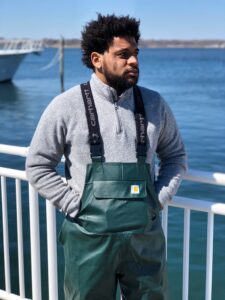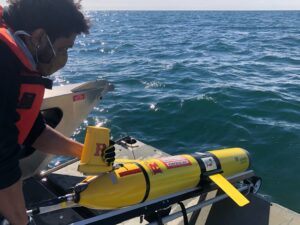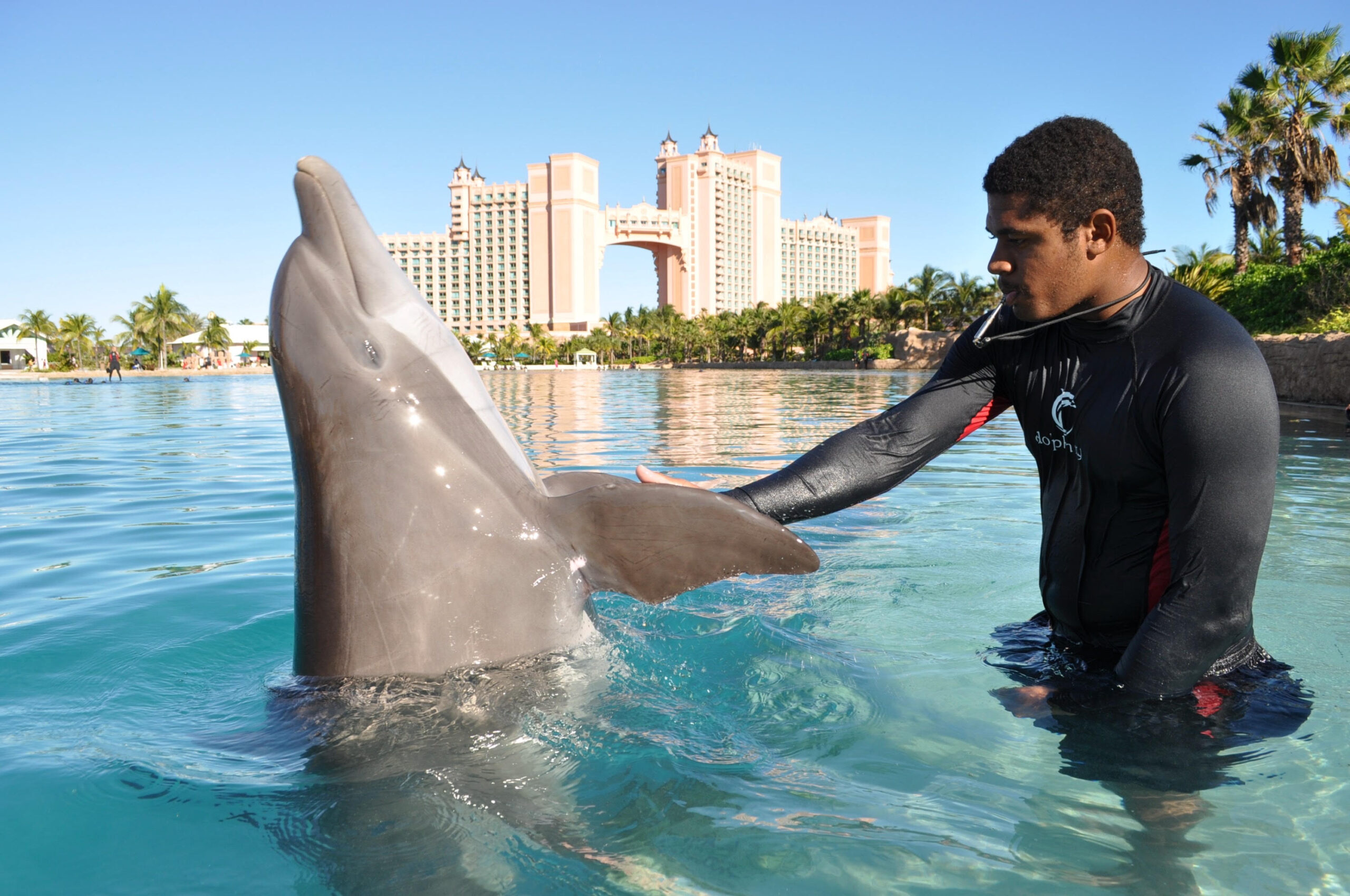As a young Bahamian, I was always within walking distance to the beach. However, my interest in marine science did not begin until I moved to the outer Island of Eleuthera. Eleuthera, meaning freedom, is a sparsely populated island only a mile in width with the Caribbean Sea on one side and the Atlantic Ocean on the other. In Eleuthera, I spent most of my time outdoors—jumping in blue holes, peering into tidal pools and exploring mangroves. In 2008, I attended the Island School, a placement-based semester program with a dedicated marine ecology research course. Under Dr. Aaron Schultz, I assessed the behavioral responses of bonefish in a hyperoxic and hypoxic environment, similar to the environment of a live-well. After I completed my semester at the Island school, I continued to work with Dr. Schultz at the Cape Eleuthera Institute (CEI) as a part of an internship, we studied the movement patterns of tagged bonefish from deep water into shallow coastal flats. The next year, I interned with the Bahamas Environmental Education Foundation (BREEF) where I met with fishermen and community members to raise awareness about controlling the spread of lionfish and other invasive species in the Bahamas.

In the summer of 2009, I volunteered to assist the Community Conch Project in stock assessments of the Queen Conch population. Shortly after, I moved to the United States to pursue a Bachelor’s Degree in Biology. As an undergraduate, I gained an interest in Geographical Information Systems and integrated GIS into my marine studies. For my interdependent study project, I interpolated Queen Conch density in the Little Bahama Bank. After graduation, I started as a GIS technician at a local engineering firm. Before returning to school for my masters, I moved up to a Project Lead for the midwest sector managing a small utilities mapping team and creating GIS procedural documents.

Currently, I am a Master’s student in Rutgers University’s Operational Oceanography program. Under the guidance of Grace Saba and Nicholas Beaird, I am working on the advanced development of the pH sensor integrated into the Slocum Webb Glider. The recent development of pH measurement technology warrants the need for accurate pH data collection. The ultimate goal of this project is to aid the scientific community in the best practices for collecting pH data with a best practices protocol document. In this collaborative effort with SeaBird Scientific, an oceanic instrumentation engineering firm, we will also be field testing a modified version of the pH sensor to validate improvements. This summer, I begin an internship with SeaBird Scientific to learn pH sensor calibration techniques.
Outside of work, you will usually find me building something (furniture), cooking and experimenting in the kitchen for potential low-carb meals, and enjoying the outdoors. I am always looking for innovative and effective ways to spread knowledge; I believe in giving back to my community through research and knowledge. Feel free to contact me with any question at tthompson@marine.rutgers.edu.

